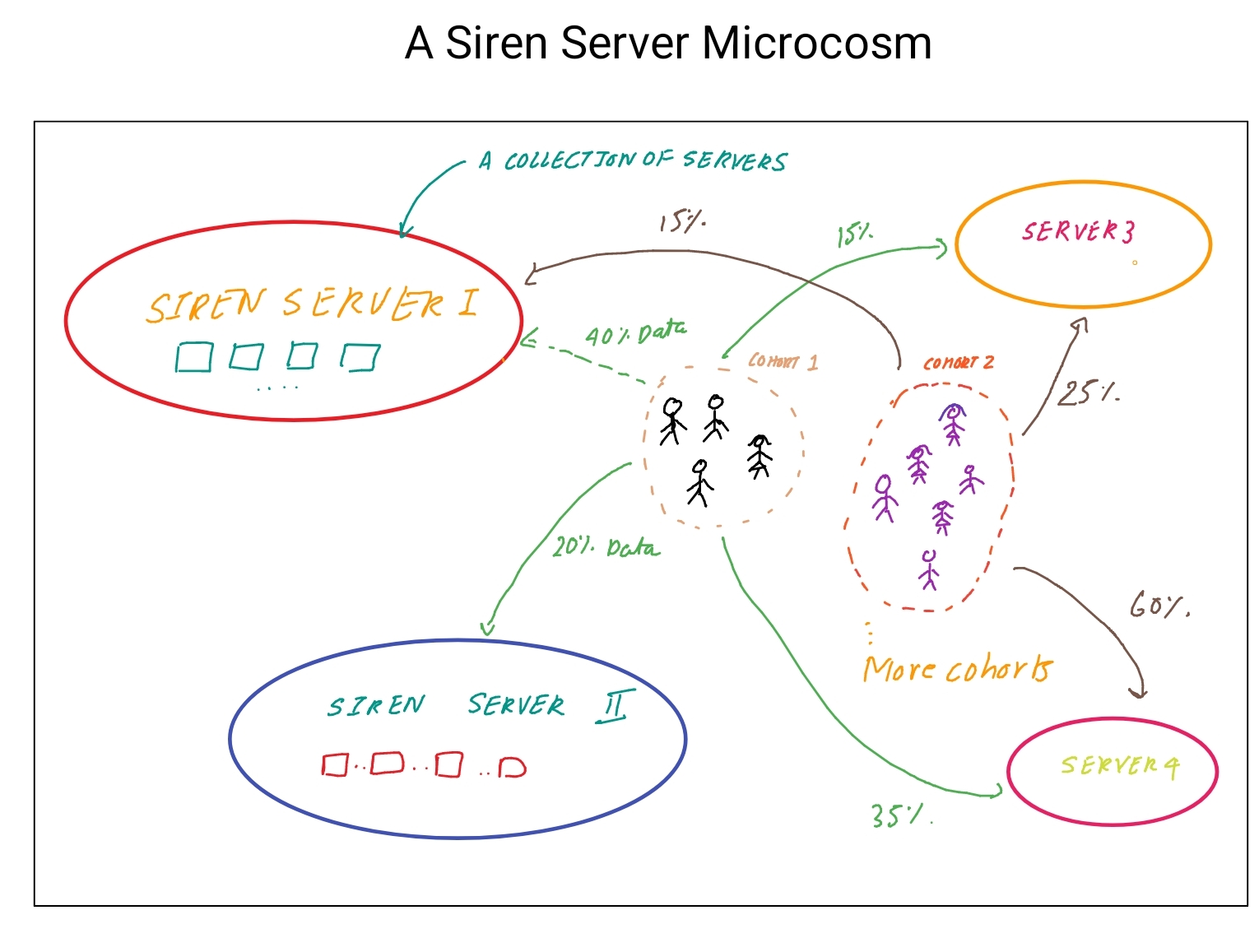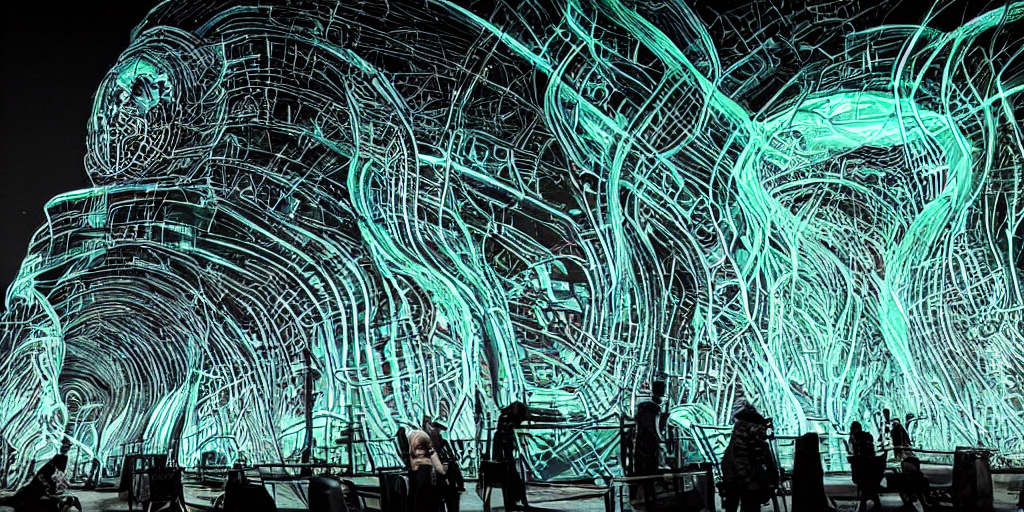Book Review 📚: Who Owns the Future
Introduction
When I came across this book, the only reason I had to look through this is because it was written by Jaron Lanier (I always confuse his name with Jared from Silicon Valley lol), considered the father of virtual reality, and his wacky hair.
I thought having been in the industry for so long, I assumed that some of his ideas must have some traction, and being a innovative technologist who quit social media, I assumed that the book must be somewhat titillating.
I was not wrong, this was a good book with lots of ideas and paradigm shifting thoughts. I’m a piss poor economist, but from the ideas that I had from reading about economics from Wikipedia (yes I’m lazy, I didn’t actually take any classes), it seemed like he had a unique perspective on tech, and how it has influenced our lives.
This was a loong loong read for me, because it was kind of technically dense. And reading 30 pages a day too was like a mental gymnastic chore. I wanted to absorb as much as “experience” of the author from the reading ,and I tried to overdo it, I guess. But in the end, I got the “big picture”. It’s not a pretty picture (as I’ll get into it in here), but sure, it’s an interesting take.
Since this is a non-fiction book, I have overlooked the fact that this might be giving “spoilers” to the book. If there’s a probability that you’ll never touch the book, then go ahead and read this. But if you plan to read this in the future, I dunno, bookmark this page or something and come back once you have read the book. That way you can enjoy this “digital fast food” much better lol.
Structure
So, I don’t have like a lecture worth set of notes on this book, nor “five-important” summaries like Blinkist. But I’ll give some running thoughts on some of the concepts and thoughts that were mentioned in the book. There’‘ll be Key Concepts, My Rant & Conclusions. On with it!
Key Concepts
Concept of Siren Servers
Lanier introduces the concept of “Siren Servers” - powerful tech companies that collect and profit from our data. They connect us, and provide us with services for free/small price and collect our data. An example would be that of Google, Instagram, Amazon, etc. He argues that these companies are reshaping our economy in ways we might not fully grasp yet. These are relatively new (they originated in the last 2 decades) and they are not organised like the Big Oil, Big Iron or Big Pharma , they have resources directly sold to the people.
And the main thing is that they ARE taking data from us. Raw, unfiltered, data. I know that the Snowden leaks told us about NSA spying on us citizens (at least in the US).
But people don’t know that not only is this data valuable for spying reasons, it’s much, much more valuable that it’s bare minimum. It’s akin the ozone depletion that happened due to unrestricted use of CFCs.
“They give us a feast of delights while stealing our secrets, unknowingly fueling a hidden algorithmic bomb that threatens to upend our world.”
Radiating Risk: Lanier argues that Siren Servers do not just benefit from data collection and analysis; they also externalise and distribute risk across the broader economy. This means that the negative consequences of their operations are often borne by individuals, small businesses, and society at large, rather than by the Siren Servers themselves.
Something like a thermodynamic system or something?
I try to visualise this as a giant Air Conditioner, which takes in normal air, cools it, and then dissipates other heated air to the external world. Here, in this data driven world, by reducing randomness, by solidifying producer to consumer routes, we are letting chances of chaos, or external events break the flow, and hence cause more damage. Kind of like Black Swan events?
Market Volatility: By using data to predict and influence market trends, Siren Servers can create instability. This kind of information asymmetry causes these problems. Their actions can lead to bubbles and crashes, as seen in financial markets where algorithmic trading plays a significant role. The broader economy absorbs the risk of such volatility, affecting investors, consumers, and businesses not directly connected to the Siren Servers.
Data As Labor
So, the main idea of “data as labor” is that we should own and get paid for the data we create. Imagine this: you meet your soulmate on a dating app, hit it off, and eventually get married. Your success story could become a valuable data point for future couples, but instead of just being a faceless statistic, you’d actually get a premium payment—20 years down the road, adjusted for inflation, of course. It’s like tagging your data for immortality and a lifetime pension!
I think this kind of data as a labor is somewhat coming in the current world with Youtubers and Instagram influencers having a say in how products are consumed and thought of. Of course, this is a consequence of capitalism, but again, instead of individual’s data being of value, people think of personality, and the quality of the “information” that is being spread by them. 
Lanier’s idea is that the current freemium, ad-based internet model is a bit of a scam, and he’s calling for a new economic system that actually rewards our individual contributions instead of just turning us into data points for some bigass corporation’s siren server.
Utopian Vision
Well, no, it’s not perfect Utopia, but the author’s version of it. Combining the ‘data as labor’ model from above, and the ‘attack-everything’ mode that we humans should have towards siren servers, he postulates to dismantle the current existing infra, and network and rebuild it, with the individual, data as the model. He envisions an economy of micro-transactions. Yes, he admits that this is not a strong or a very beneficial model, but he says we’ll be getting there, just start doing it.
He addresses some of the shortcomings of his ideas (at least as far as I remember). And points out that some of them are solvable by just a shift in people’s ideas, and some he doesn’t have any answer to. (Nice, I like it). Of course, he points it’s the system is rigged to promote more “winner-takes-all” kind of models, and Lanier says we have to fight against it. That would take a little bit more of societal effort, but it’s possible is what he says.
Rest of the Book
Well, that’s the main part of the book, I think whatever else he had, just materialised into trying to convince this works, and give workaround for this. There’s concepts about privacy fanatics, and alternative economies, and user-generated content driven market (which I think is already happening with the current Influencer trend?) and information valued economy.
He has a very…Neo-Keynesian way of looking at economics, which is hugely influenced by the concept of “Money doesn’t remember blood” (which was a new concept to me of course). This is cool, and he already visions us transferring to the future, more thoroughly than I can ever imagine lol.
But this is all the gist of the main ideas in the book I could take. Of course, I can’t claim to understand the 20 year thoughts from a distinguished technologist, but I think I could understand some.
My Rant
On Siren Servers
Of course, this is mostly interesting and right. We as humans and citizens have become a little more privacy oriented in this world right now. Most people think they understand how data theft and mass surveillance works, but this is not the case. I think this concept of a “entity” having and collecting more data and power than the plebs who willingly donate data to it, doesn’t seem far fetched. The only thing that I know that this data will far outlive it’s creator, and it’s current benefactor. There seems to be something going on greater than just “collecting data to serve us ads”. We’re feeding vast amounts of data into a budding digital Cthulhu—something massive is being built that we can’t yet foresee.
I think if there were such a large distributing effect by the radiating risks of siren servers, then it should have been proven in data. At least we should be able to see this. I currently haven’t read any book or news that discusses this in high detail. (Maybe it’s discussed and proposed in a Reddit thread somewhere, but nah, i’m too lazy for that shit lol) Another concept that was hard to wrap my head around was that the siren servers, once they establish monopoly, have no reason to grow, and unless they pivot to something scammy or much more inventive. They will die out again. I mean, it’s a point alright, never thought about it, in such a way.
Also, these power games are not old. They have been happening at least, since the dawn of civilised mankind and I think some form of human world game theory (it’s just game theory with a wee bit of human stupidity) must be dictating the rules. I think even though there might be a power and information disparity right now, it will reach some equilibrium in the future. That’s the way nature works.
The Data Economy: A Brave New World
On the nature of data, I think the huge amount of data we are producing today, won’t be of any use to us future humans of course, except for memes and maybe some nostalgia, but it might serve as training data for a new “world simulation”. Each player is a human, and with enough of one’s insta stories, and snaps, and LinkedIn posts, an NPC can be trained on them. As depicted in an episode of Black Mirror. Again, there are more and more thoughts coming up as I write this, and I should shut up lol. Will pen them in other posts maybe. That should do it.
Other Thoughts
I recently watched Tom Scott’s video, (it’s a bit dated I know), and it seems that Lanier’s ideas are beginning to take shape. Of course, Tom Scott differs from him regarding data (The title of the video is “Privacy is dead”, what do you expect!), but it is again It might make our future very interesting.
Lanier has some ideas regarding the current privacy fanatics, and the budding future ones. I saw it earlier in this Elementary show, in an episode where a guy tries to escape FaceRec by painting weird colors. I think I’ll understand this more and more as I read more economics and science, and sociology, and all the knowledge of the world lol.
His ideas are genuinely mind bending as he gives curt answers to those privacy fanatics and the idea of “what is there to hide?” kinda folks too. The concept of the world being split into two : The “data givers” and the non-participants, who’s see the benefits of giving data and making money. It’s good food for thought.
Conclusion
Lanier: Is he a Tech Prophet?
Alright, alright, I’m joking of course! I don’t consider Lanier as the Zuck Messiah or something like that lol. He has talked to a lot of folks, and has seen a lot of invention and innovation in technology, so he makes me feel that this guy knows what he’s talking about. When he’s predicting about AI robots taking over healthcare and stuff, I can understand and respect it. He’s seen enough tech bubbles to understand what works and what doesn’t.
Hence, when he gives a proposal of data collection (bro, do you seriously wanna solve data theft with more “legal data theft”🧐?) and a form of living that is alien to how I currently do, it’s kinda believable. It’s so crazy, it might just work. Or fail spectacularly. But that’s the beauty of it - he’s not afraid to put it out there, flaws and all. I like this honesty. What he’s trying to do is an effort. An idea. A thought process for a community, which (as he hopes in the future) dictates policy and hence changes the world.
He doesn’t envision the change of the world as a switch, but drags out the details, talking about each interesting point he could think of. I mean, you can make a movie of this idea, man. That will make me think more. (He’s waiting for a movie based on this to happen for him to get rights 😂.)
Mind= Blown
This book took so long to complete, I have to say that it’s very much hugely time consuming. It took a long time for me to get back to this craziness of a book and accept it for what it was. It’s not perfect - there were moments when I thought about using it as a pillow. I still have a lot of thoughts and notes on it, and it seems like it influenced many of my tech thoughts. It’s the kind of book that makes you want to call your tech-savvy friend at 3 AM just to debate its ideas.
Overall, it’s a very very nice book to read, and he has some things to say lol. I think as I understand more the book, the more I become a technologist I guess. Until then, what I have is a sliver of changes in the industry. The best way of gaining more info is thinking in the other way
Farewell, Buch
In the end, this book is like that one friend who always has the craziest ideas at parties. You might not agree with everything, but damn, it makes for an interesting conversation. Though it felt like a slump in the middle, it genuinely gets better at the end. Glad to have read it. I give it a solid 8/10. Will re-read again in the 2040 maybe.
And who knows? Maybe Lanier’s onto something. Only time (and a whole lot of data) will tell






